There is no one way to be an LGBTQ rights advocate. You could be the director of a non-profit organization working to protect incarcerated gender nonconforming individuals or a mother fighting for her trans daughter’s right to be treated like any other kid. You could identify as LGBTQ or be an ally. You could chair multiple initiatives and campaigns or be a new face at an introductory meeting. In the fight for the rights of LGBTQ communities—which are currently at threat by a staggering increase in hate crimes, heightened anti-gay sentiment, and proposed anti-LGBTQ legislation across the country—there is room for all levels of engagement, experience, and skill.
In tandem with a recent special episode of GAYCATION, Ellen Page and Ian Daniel’s VICELAND show that explores the various LGBTQ cultures that exist around the world, Broadly is highlighting 50 LGBTQ rights activists across the 50 states. This list is by no means comprehensive, but is instead illustrative of the different shapes and forms that activism can take across the US.
Videos by VICE
Alabama
James Robinson is the founder of Free2Be Safe Anti-Violence Project, a public charity that provides minority victims of violence, bullying, and abuse with social services like counseling, support groups, public advocacy, and professional development. Every summer for the past six years, Robinson has also put on Rocket City Pride, the premier Pride event for North Alabama, which attracted over 10,000 guests last year. “[Rocket City Pride] is an opportunity to reach out to the larger community in our area,” Robinson wrote on the event’s website. “Holding the event in the city center of downtown Huntsville, we bring visibility to LGBT citizens and their allies.”
Alaska
Just over a month ago, Alaska could not claim a single LGBTQ elected official—and then Felix Rivera and Christopher Constant, two openly gay candidates, both won their races for Anchorage Assembly. Supported by Victory Fund, a political action committee dedicated to increasing the number of openly LGBTQ public officials in political positions, their wins are symbolic of a shift toward inclusiveness in the city’s politics. “We know that representation is power—and that LGBTQ elected officials humanize our lives and change political and policy debates,” Victory Fund President & CEO Aisha C. Moodie-Mills said to LGBT Weekly.
Watch Now: United We Stand GAYCATION Special
Arizona
This year’s Phoenix Pride Parade was interrupted by Trans Queer Pueblo, a LGBTQ+ migrant community of color that’s grassroots- and democratically-run. The group demanded that that Pride organizers remove the police from the parade and instead provide support to the many LGBT people of color and undocumented immigrants who have been repeatedly failed by the government. While the group functions autonomously, co-founder Dago Bailon has acted as a frontman for TQP. “In the hostile environment of Arizona, LGBTQ+ migrant and undocumented community of color faces racism, transphobia and homophobia,” Bailon told Broadly. “Trans Queer Pueblo is one of few safe havens for trans and queer migrants and trans and queer people of color.”
Arkansas
After becoming increasingly aware of the lack of resources and safe spaces available to the Latinx LGBTQ community in Little Rock in 2015, William Campillo Terrazas cofounded the community-based Latinxs Revolucion LGBTQ, a queer- and trans-led organization that focuses the well-being of LGBTQ, Latinx, and undocumented communities in Arkansas. In April, Terrazas was selected to be one of 10 fellows in the The Human Rights Campaign Foundation’s HIV 360° Fellowship Program, which focuses on “elevating the work of young people on the front lines of the HIV and AIDS epidemic.”
California
Born in Hong Kong in 1965, Cecilia Chung moved to San Francisco in 1993 where she went on to become a pioneering, nationally recognized trans activist. While she currently serves as the senior strategist for the Transgender Law Center and is on the San Francisco Human Rights Commission, she told ABCthat she found herself “trans, unemployed, and [HIV] positive, and hooked on crystal meth,” when she first moved to the city. Today, she is a vocal advocate for trans rights and HIV/AIDS awareness, and is one of the three LGBTQ activists featured in the ABC series “When We Rise.”
Colorado
While she did not win the race to represent Colorado’s 5th Congressional District, Misty Plowright will go down in history as one of America’s first openly transgender people to be a candidate representing a major political party for a national office. In a deeply conservative district that white male Republicans have held since its creation in 1973, her campaign signals a progressive shift—though she believes we can’t expect the Democratic Party to spearhead this effort. Instead, she believes it must come from individuals like Plowright. “[Democratic party leaders want] to pat themselves on the back for being inclusive,” Plowright told VICE. “[But] the fucking established powers of the Democratic Party here were against me…[Misty Snow and I] our primaries in spite of them, not because of them.”
Connecticut
Robin P. McHaelen is the founder and executive director of the non-profit organization True Colors, which works with other organizations and schools, and within communities to ensure that the needs of sexual and gender minority youth are both recognized and met. True Colors also organizes the largest LGBTQ youth conference in the country and manages Connecticut’s only LGBT mentoring program. “She is an outspoken advocate in support of legislation that advances legal rights and protections for queer youth at both the state and federal level, and has developed a nationally recognized training module in cultural competency on LGBTQ+ issues used by corporate and public sector employers,” Carter Johnson, the VP of Communications at True Colors, says of McHaelen. “Whether she is testifying at the capitol on legislation regarding transgender rights, or working to find a home for a displaced gay child, Robin is tireless in her efforts working with other social service agencies, schools, organizations, and within communities to ensure that the needs of sexual and gender minority youth are both recognized and competently met.”
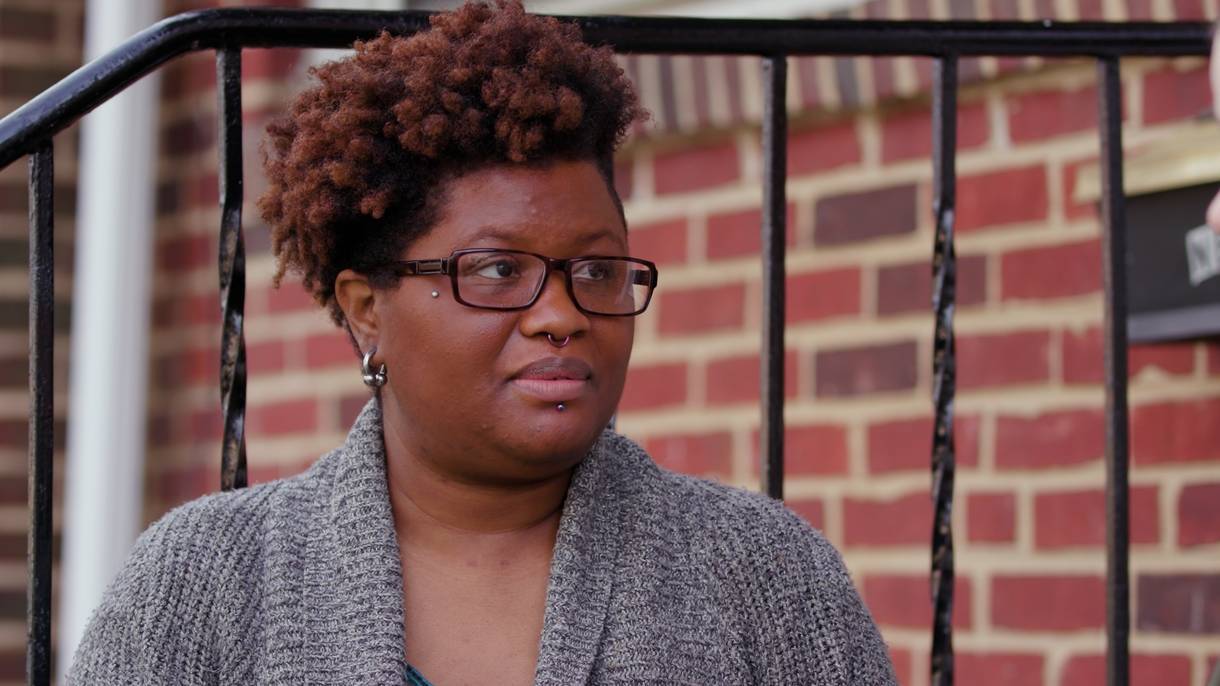
Photo of DeShanna Neal via Broadly.
Delaware
“Do you want a happy little girl or a dead little boy?” DeShanna Neal quoted her therapist in her op-ed for Broadly about Trinity, her 13-year-old trans daughter who was four years old and battling severe depression when she transitioned. Today, Trinity advocates for other transgender kids and aims to help them through transition, and Neal, her mother and her biggest advocate, is a member of HRC’s Parents for Transgender Equality Council. “I finally came to the frustrating realization that if I didn’t start fighting for her, no one else would,” Neal wrote.
Florida
Patty Shehaehan, who serves as Orlando’s first openly gay city commissioner, has advocated for a handful of LGBTQ rights campaigns and legislations since being elected in 2000, such as passing non-discrimination protections and Domestic Partnership legislation for the LGBT community, and signing Orlando Police Chief John Mina’s proposed initiative, which followed the 2016 shooting at Pulse nightclub, to provide local businesses with signage that indicate whether they are a safe haven for queer individuals to go to if they need help. Most recently, she spoke out against two of the city’s top elected officials’ decision to commemorate the shooting’s one-year anniversary this summer without saying “LGBTQ.” “[Overlooking the effect of a tragedy like the Pulse attack on minority communities] begins with omitting them and trying to make them go away,” she told the Orlando Sentinel. “We we will not be silenced. We will not be made to go away.”
I finally came to the frustrating realization that if I didn’t start fighting for her, no one else would
Georgia
Tracee McDaniel has an endless list of accomplishments: She was the first transgender person to be invited to deliver a keynote speech at the 2007 Martin Luther King Jr. birthday celebration march, a guest to the White House for Washington’s 2015 Trans Women of Color Women’s History Month Briefing, and the founder of the transgender advocacy and consulting organization Juxtaposed Center for Transformation. Most recently, Atlanta Mayor Kasim Reed appointed McDaniel to fill a seat on the Atlanta Citizen Review Board to represent the city’s transgender community on a board that reviews police action.
Hawaii
Director of Hawaii’s LGBT Legacy Foundation and the Coordinator of Lesbian, Gay, Bisexual and Transgender Student Services at the University of Hawaiʻi at Mānoa, Camaron Miyamoto has been fighting for expanded LGBT rights since the 1990s when he was advocating for same gender marriage in Hawaii. He’s a founding member of Hawaii’s Safe Schools Coalition, which advocates for LGBTQ youth protections, and a year ago, UH Manoa installed all-gender bathrooms, a cause that Miyamoto had led. “All-gender restrooms can be essential for transgender and gender-nonconforming students who don’t feel comfortable in sex-segregated facilities,” Miyamoto said in a press release. “There is a mandate for this nationally and I’m really proud that UH is ahead of the curve.”
Idaho
After a bullied gay teenager took his own life in Pocatello, Idaho, in 2012, Tom Nestor created All Under One Roof, a youth LGBT center in the rural, heavily Mormon southeastern part of the state. Today, he serves as the executive director and organizes Pocatello Pride, as well as other LGBTQ events for both youth and adults. One of his most impactful social services is his center’s free and confidential HIV Testing, which they offer at all major events and in office. “This being the religious area it is, we don’t talk [about] sexual education or testing in any of the high schools,” Nestor told The Advocate. “So we built a room.”
Illinois
In response to three anti-gay bashings in the Chicago’s “Boy’s Town” neighborhood in 1998, Andy Thayer formed the direct-action group Gay Liberation Network to not only advocate for domestic LGBTQ rights, but also for those abroad. Thayer has been arrested multiple times for demonstrating, has had his house raided by the FBI in search of material support of terrorism, and also identifies as an anti-war activist. He has also been an outspoken advocate for Chelsea Manning and seeks to raise awareness around how corporations and systems work together to suppress marginalized communities.
Indiana
Katie Blair, the campaign manager for Freedom Indiana, spearheaded her organization’s fight against former Indiana Governor Mike Pence’s 2015 Religious Freedom Restoration Act, which allowed businesses to discriminate against LGBT and non-cisgender individuals in the name of religion that Pence backpedaled on after pressure from individuals like Blair. A former director of activism for Planned Parenthood of Indiana, Blair is now the Director of Advocacy at the ACLU of Indiana.
It is so important that we continue to fight, even when we are cornered, even when we are desperate, and even when we are afraid
Iowa
Sophia Stone is the president of Transformations Iowa, a support group for all transgender and nonbinary people, as well as their allies, that meets weekly in Des Moines, Urbandale, and Cedar Rapids. Days before Trump’s inauguration, Stone spoke to The Des Moines Register about the fears of the trans community’s fears surrounding the new administration, conveying the need for organizations such as hers. “While the trans community may be diverse and growing every day, we are still small. We need the help of allies to protect us and our rights.”
Kansas
“It is so important that we continue to fight, even when we are cornered, even when we are desperate, and even when we are afraid,” Chelsea Manning wrote in a letter to Broadly, referring to LGBT Americans who might feel hopeless in the current political climate. After the former military intelligence analyst was arrested in 2010 for leaking classified documents that intended to expose the human cost of America’s overseas operation, she was incarcerated and subsequently came out as transgender. “There is a tendency in certain parts of our community to take a step back during a crisis, to wait and see what happens, and hope for the best,” she previously told Broadly. “We absolutely cannot afford to do that.” Since being sentenced to a men’s prison, Manning has vociferously fought for protections and has been grossly denied. However, just days before Trump’s inauguration, Obama pardoned Manning; she was freed from prison on May 17.
Kentucky
Chris Hartman is the first director of Louisville’s two-decade-old Fairness Campaign, a lobbying and advocacy organization that focuses primarily on preventing gender- and sexuality-based discrimination in employment, housing, and all areas of life. Since joining the organization over eight years ago, Hartman and his staff have advocated for fairness ordinances throughout the state, and anytime there’s an LGBTQ rights-related issue in Kentucky, Hartman is often one of the first to speak to the press. This February, Bowling Green residents gathered at a City Commission meeting at City Hall to hear a proposed fairness ordinance read for the first time, at which the ordinance was tabled. While locals were angered, Hartman seemed optimistic in his response on the College Heights Herald. “We’ll keep the pressure on; we’ll keep advocating; we’ll keep bringing people forward who have stories to share with the city commission about why a fairness ordinance is needed here,” he said.
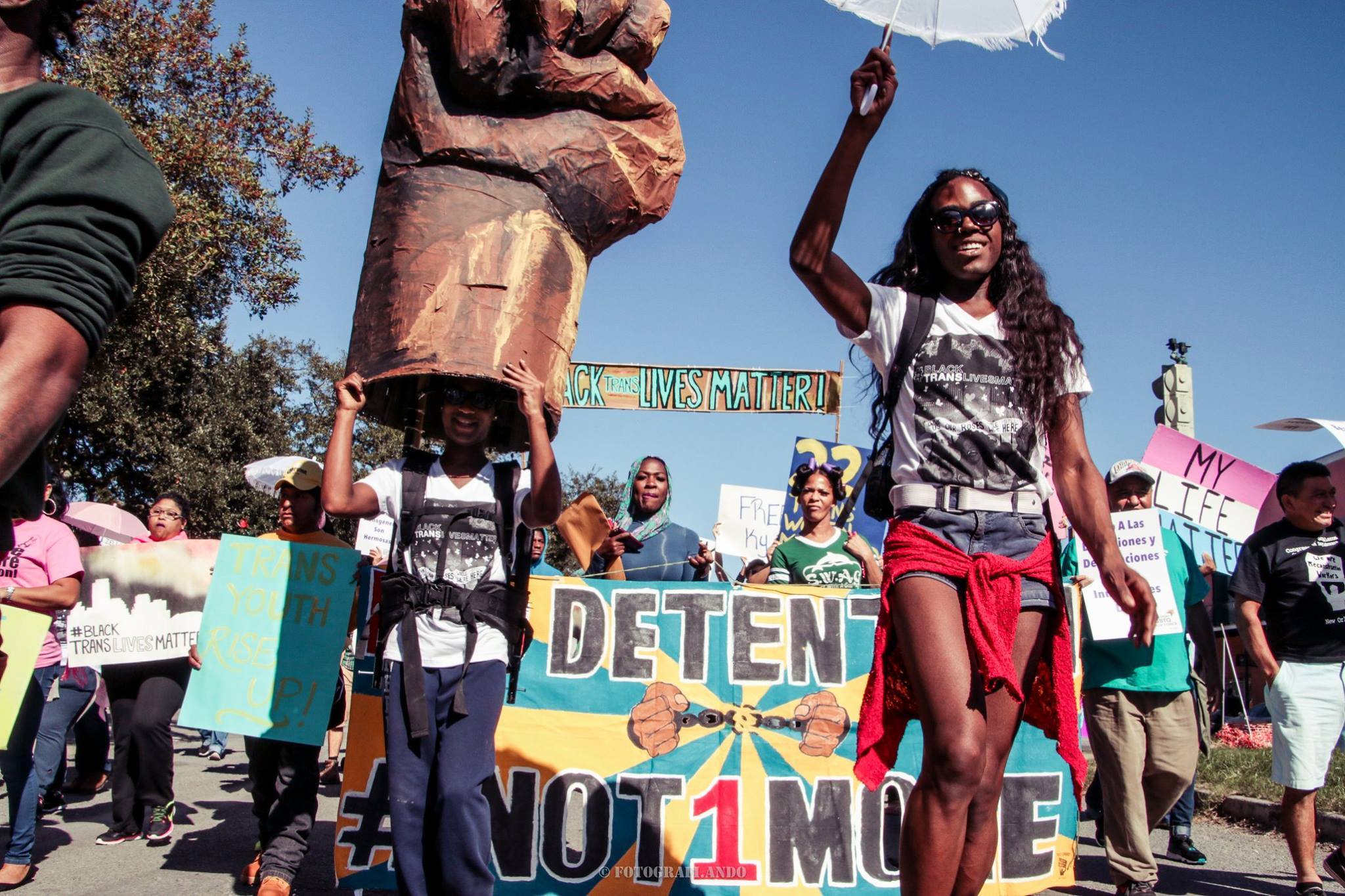
BreakOUT! photo courtesy Fernando Lopez.
Louisiana
According to the New Orleans-based nonprofit Propeller, LGBTQ youth make up five to seven percent of the nation’s youth population, but account for 40 to 50 percent of homeless youth and at least 15 percent of youth in juvenile detention. That’s why in 2012, Wesley Ware founded BreakOUT!, an organization with the mission to end the criminalization of LGBTQ youth and build a safer, more just New Orleans. Through BreakOUT! and by himself, Ware has worked toward that goal, implementing an LGBTQ youth policy at the city’s only youth shelter and launching a GED program for BreakOUT! members.
Maine
When Nicole Maines, a transgender girl in Portland, Maine, was told she had to use a staff bathroom instead of the girls’ restroom at her school, her family filed a lawsuit and she switched schools. She won the lawsuit, was welcomed by her new school, and also earned Maine Women’s Fund award for “marking a historic and landmark victory for transgender rights in the US.” “Nicole continues to play an active role in advocating for her rights: she has spoken on Maine Public Radio to shine a light on what it means to be transgender in Maine; she has appeared before the Maine Legislature speaking to legislators about transgender children; and she was a summer volunteer for Equality Maine,” the Maine Women’s Fund wrote in a press release.
Maryland
A former public school administrator, DeRay Mckesson is best known for his involvement in the Black Lives Matter movement and the police reform plan Campaign Zero. From going on Stephen Colbert’s show to actually running for mayor of Baltimore, the activist has come a long way since he made a spur-of-the-moment decision to join the marches for Michael Brown, the black teenager killed by police officer Darren Wilson. McKesson also recently launched “Pod Save the People,” his podcast on on activism, social justice, culture, and politics. While he’s often referred to as a Black Lives Matter activist and not an LGBTQ activist, he told Huffington Post that for the BLM movement to be true to name, it must open up the conversation around black LGBTQ individuals. “We are talking about the complexity of identity,” he told Huffington Post. “So the fact that we are having these conversations is helping more people to enter into the conversations about queerness and the trans community, and I think that work is actually happening.”
Massachusetts
Jason Lydon is the national director of Black and Pink, an LGBTQ prisoner support network. In 2015, he lead a study that found that 85 percent of queer and trans inmates said they had been held in solitary confinement and had “abysmal” access to health care. “I do my work with criminalized and incarcerated LGBTQ people because the white supremacist criminal legal system constantly attacks our family, particularly people of color and poor people,” Lydon says. “As more people wake up to the harms that have been going on for generations, our work to abolish prisons and create transformative justice practices must continue to grow if we wish to create a world free from violence.”
I do my work with criminalized and incarcerated LGBTQ people because the white supremacist criminal legal system constantly attacks our family, particularly people of color and poor people
Michigan
When April DeBoer and Jayne Rouse discovered that they could not jointly adopt each other’s children as a couple because Michigan did not recognize same-sex marriage, they sued the state in 2012. Three years later, their case was consolidated into Obergefell v. Hodges, the landmark case that granted same-sex couples the right to marry. After the decision, the couple wed and formally adopted their five children.
Minnesota
As the executive director of OutFront Minnesota, Monica Meyer has been involved in grassroots organizing and policy advocacy for 25 years. During her time at the organization, Meyer founded Minnesota Safe Schools for All Coalition, which is a group of more than 140 education, disability, youth, religious, LGBT and social service organizations, and Minnesotans United for All Families, the electoral campaign that defeated the proposed constitutional amendment to limit the freedom to marry in 2012.
Mississippi
In a deeply conservative state, Nat Offiah works as a youth organizer for the Mississippi Safe Schools Coalition, which helps to ensure that schools are hospitable to LGBTQ youth. While being LGBTQ in the state is not always easy, Offiah doesn’t think struggle should define the region. “I don’t think there’s a single defining word that sums up the queer community in Jackson,” Offiah previously told VICE. “It’s broad, it’s vast, and it’s in every facet of being a Jacksonian.”
Missouri
After Springfield, Missouri, repealed its nondiscrimination protection for LGBTQ people in 2015, Bethany Johnson made it her goal to get protection back on the ballot in November 2018. As a trans woman and activist, she spoke at the city’s Women’s March in January, organized a transgender rights rally, and just two months ago, she registered her political action committee, “Queen City LGBT Initiative,” with the Missouri Ethics Commission. She told the Springfield News-Leader that her fight will not be easy in the city, but that she’s still hopeful. “There’s a lot of work to be done to build bridges with people in the local community,” she said. “It’s going to be a lot of work, but I believe that Springfield is ready because I believe in the hearts of the people here.”
It’s going to be a lot of work, but I believe that Springfield is ready because I believe in the hearts of the people here.
Montana
In July 2016, the ACLU of Montana hired SK Rossi to be their Director of Advocacy and Public Policy. Rossi previously held this position at the ACLU of Missouri, during which they launched a racial and criminal justice project and substantially built the ACLU’s reputation in that state after the killing of Michael Brown. Most recently, they spoke out against Montana’s attempt at passing an infamous anti-trans bathroom bill. “It’s so poorly and vaguely drafted that not only would it have unintended impacts on gender nonconforming people, it’s also going to embroil local governments in litigious and unreasonable lawsuits,” Rossi told the Associated Press. “Targeting transgender people specifically for harmful and exclusionary measures is cruel and unnecessary.”
Nebraska
In the state where a woman tried to sue every single gay person on Earth in 2015, Abbi Swatsworth, the president of nonprofit LGBTQ community center Outlinc, is standing up for LGBTQ individuals. She wants the community in Lincoln “to have loud and proud Allies who work with us to make Lincoln the best mid-sized, Midwestern city going,” the center’s website reads. “The kind of city LGBT people want to move to.” Working toward that goal, she recently helped a local trans college student this March host a “Transgender Rights Are Human Rights” event inspired by the Trump administration’s decision to repeal Obama’s guidelines for protecting transgender students. “Transgender students and adults need their voices heard,” she told The Daily Nebraskan. “There need to be visible signs throughout the community that Lincoln supports them.”
Nevada
Dr. Victoria Hartmann is a sex scholar and the director of Las Vegas’ Erotic Heritage Museum, which aims to erotica to promote progressive beliefs surrounding sexuality. More than just a collection of artifacts, the EHM is positioning itself as a space primarily seeking to empower traditionally marginalized communities and sexualities, including LGBTQ individuals. “The scientific study of sexuality can have moral and ethical consequences which serve to de-stigmatize sexual expression and help create a more just society,” Hartmann told Broadly. “Beyond research, open dialog about sexuality helps to normalize sexual expression, especially given the religious and institutional forces that would stigmatize any sexual expression they deem deviant or other than representing privileged heteronormative sexual activity for reproduction. It affects us all when rights around sex and gender are prohibited or vilified.”
New Hampshire
Emily Fishbaugh is a 15-year-old trans girl who testified earlier this year for New Hampshire’s House Bill 478, which bans discrimination based on gender identity. This February, she told New Hampshire Public Radio that “all trans people are like everyone else and we deserve to be treated just like every other human because we are just like everyone else.”
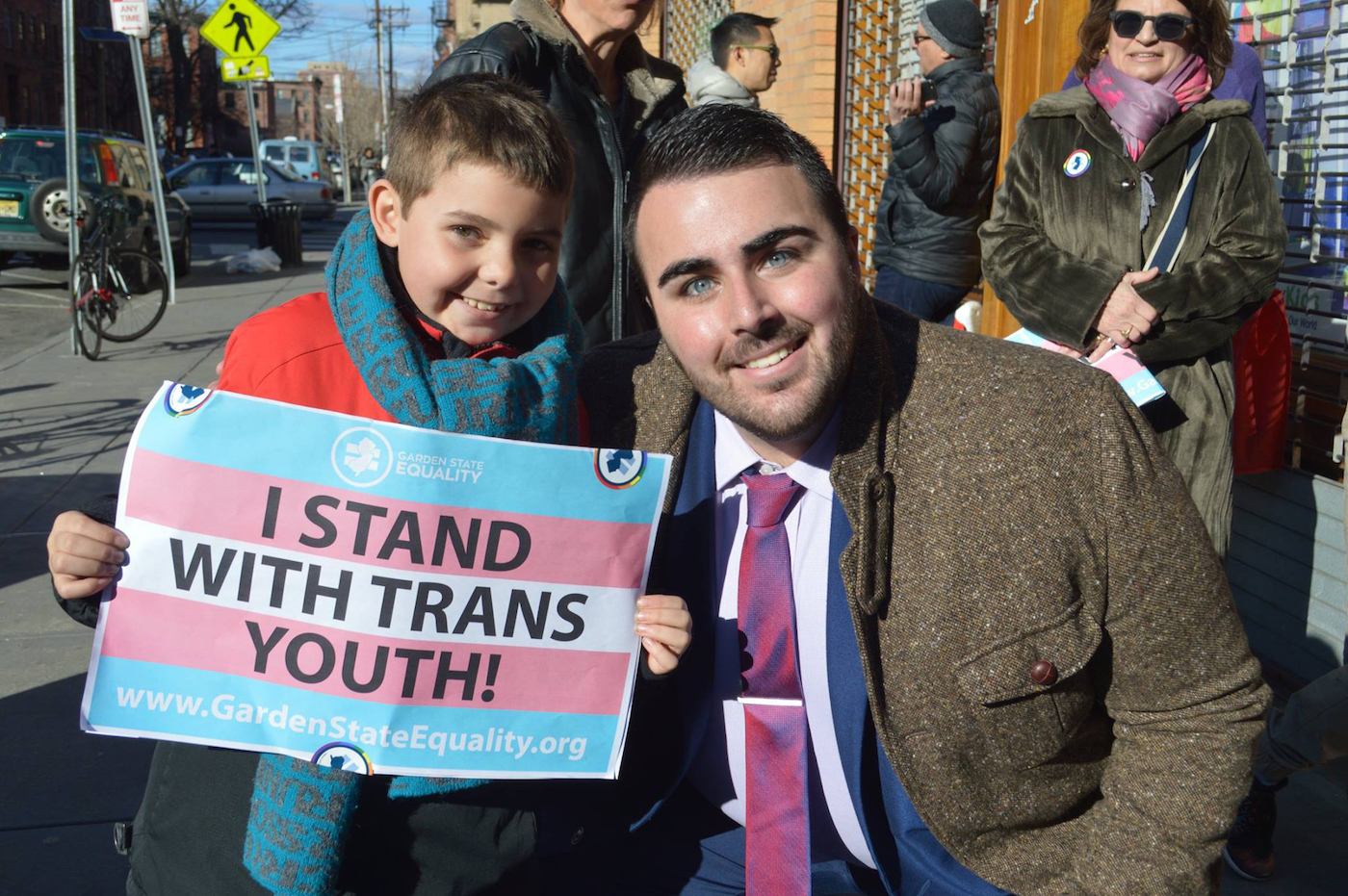
Photo courtesy Christian Fuscarino.
New Jersey
Christian Fuscarino is the executive director of Garden State Equality, which was New Jersey’s most influential LGBTQ lobbying group during the fight for marriage equality. The founder of The Pride Network, a 2007 Emmy award-winner for his End the Silence public service announcement, and an overall advocate for the rights of marginalized communities, Christian was recognized as the second most influential advocate in New Jersey politics by PolitickerNJ and was listed on the Observer‘s Power List 100 in 2016. “As the most densely populated state in the nation, we can’t expect everyone in our community to take a train into Philadelphia or New York to find the care and resources they need,” Fuscarino told Broadly. “I am working with my staff and board to close those gaps by providing necessary and critical services right here in the Garden State.”
New Mexico
The day before Trump’s inauguration, Jacob Candelaria, an openly gay New Mexico state senator, sponsored a bill that prohibits licensed doctors, nurses, psychologists, and other health practitioners from administering conversion therapy to those under 18. This past February, Republican governor Susana Martinez signed it. This is an issue that “transcends party labels and ideological differences,” he told LGBT Weekly.
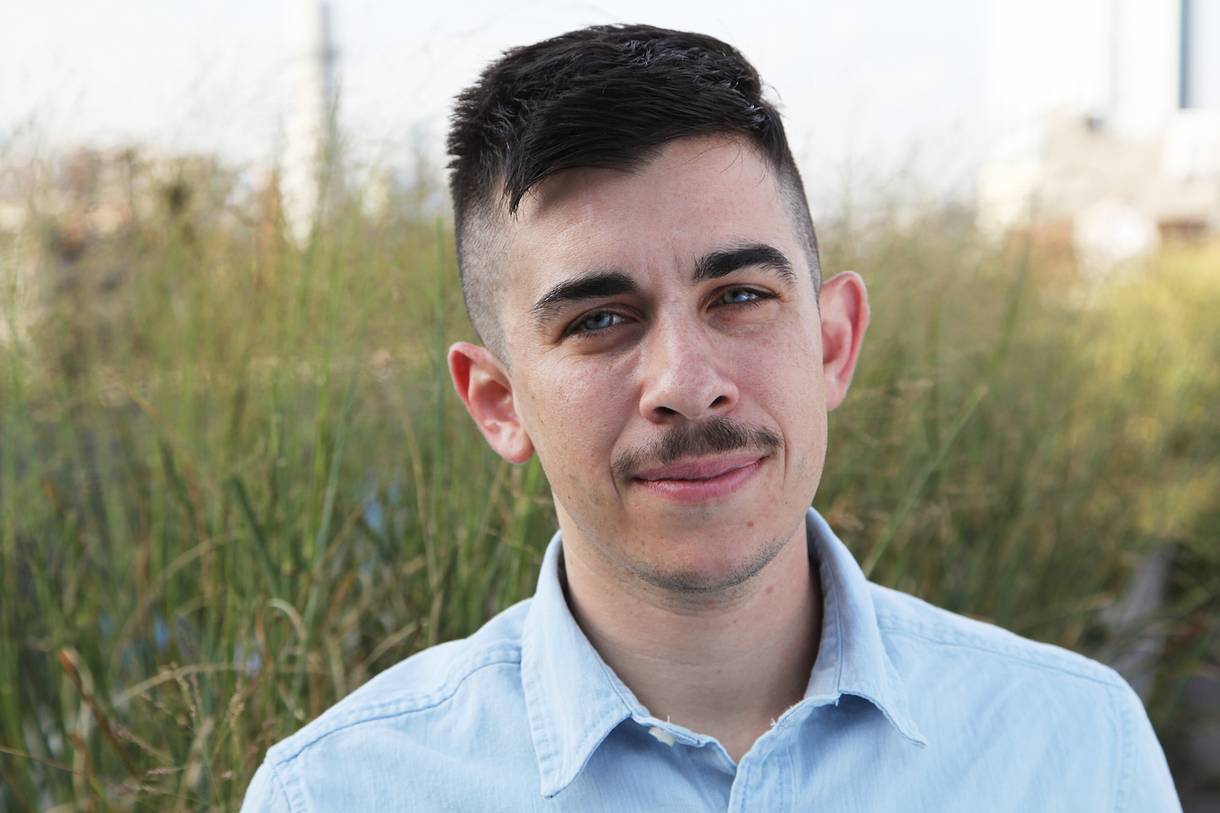
Photo of Chase Strangio by Leah James.
New York
Chase Strangio is a trans lawyer at the ACLU who fights discriminatory legislation that targets trans people and other marginalized communities. Perhaps most famously, he has represented Gavin Grimm, the transgender boy from rural Virginia who has become a figurehead for transgender civil rights; he’s the perfect advocate for Grimm. “We really want to be sure that actual trans people are there so that when [our opponents are] making the argument that being trans is a delusion, or that trans people don’t actually exist, they’re going to have to say that to the face of an actual trans person over and over again,” he previously told Broadly.
North Carolina
In the state with the infamous anti-trans bathroom bill, James Miller, the executive director of the LGBT Center of Raleigh, is focused on seeking out what private and individual funding he can find to ensure that his program survives. “In a conservative administration, federal and state dollars to do youth development work may not exist,” he previously told VICE, but he is not without hope. “While the rhetoric we’ve seen this election cycle has given [resilient young adults] much to think about, in most cases it has only helped to cauterize their passion for queer leadership. It is one facet of our center that constantly gives me hope for the future.”
North Dakota
Christina Fjeld is the president of Pride Minot, the organization that supports the large LGBTQ population in the red state. Because Minot has become a center for the community, Pride Minot’s website is a resource for locals and travelers to find LGBTQ-friendly businesses, worship centers, and more. “[Pride] brings people together,” Fjeld told KFYR TV. “It gives you a family you never knew you had. It gives you a support system. It gives you resources that you didn’t even know existed.”
Ohio
Jim Obergefell, the named plaintiff in the Obergefell v. Hodges Supreme Court case that legalized same sex marriage nationwide, first encountered the courts when he filed a suit against his home state of Ohio after it failed to recognize his name on the death certificate of his husband. Months before, the pair had legally wed in Maryland, but such was not yet legal in Ohio. It goes without saying that his case went on to make history.
Watch Now: Gavin Grimm’s Fight for Trans Rights
Oklahoma
Paula Sophia Schonauer has been a columnist for Oklahoma City’s gay newspaper, the city Police Department’s first openly transgender officer, and an adjunct professor at a local community college; throughout it all, she has been an LGBTQ activist. In January 2017, the Cathedral of Hope Oklahoma City gave her the “Hero of Hope” award, which is given to those who change how society views LGBTQ people as well as how LGBTQ people think about Christianity. While much of LGBTQ discrimination is based on religion, the Cathedral of Hope doesn’t believe the two have to be at odds, and neither does Schonauer.
Oregon
In 2015, Kate Brown became the nation’s first publicly bisexual governor when she was elected in Oregon. She was involuntarily outed by the Oregonian during one of her campaigns for public office, but she immediately embraced her public identity and became a fierce ally for LGBTQ Oregonians. Her position even resonated with those outside the state, as she received a letter from a young bisexual person in Indiana soon after she was sworn in. “They felt like my coming out gave them a reason to live, like there’s other people out there like me,” she told the Associated Press. “That’s what I was able to say to my mom: This makes a huge difference to people.”
Pennsylvania
Louie A. Ortiz-Fonseca is a Philadelphia-based afro-Latinx activist who seeks to make sure that his city’s well-intentioned LGBTQ services are available to Latinx individuals. “Conversations about race scare people, and it scares queer people because we’re socialized to think all gay people will get along—that that identity would be enough,” he told Philly Voice. “But that hasn’t been the complete case, and I think we’ve been reluctant to have that conversation.” That’s in part why he founded The Gran Varones, a video and photography storytelling project for Latinx, Afro-Latino, gay, and queer individuals to show what it means to be out and proud to both their families and people around the world.
Rhode Island
Kate Monteiro is one of Rhode Island’s leading LGBTQ rights activists. She formerly served as president of The Rhode Island Alliance for Lesbian and Gay Civil Rights and chaired Marriage Equality Rhode Island. Most recently, she co-chaired the first meeting of the new Women’s Caucus at Rhode Island Democratic Party. Though speaking specifically to attendees at the caucus meeting about next steps to take in organizing the group and coming up with platforms, Monteiro spoke universal words that could be echoed at any meeting of activists. “This [caucus] is not an engine that’s already built,” she said. “You are, by being here today, members. What the Caucus is and stands for is what you build.”
South Carolina
In 2016, Crystal Moore ran to not only be the first first female sheriff in South Carolina, but also the first openly gay one. Two years prior to her run, the major of Matta, South Carolina fired Moore for having a “questionable” lifestyle; while the small town of Latta was (and is) socially conservative, locals rallied around Moore and together, they stripped the mayor of his power and the town council rehired Moore. While she was ultimately not elected in her run for sheriff, her campaign was historical for both women and LGBTQ individuals.
We demand that everybody in the state be treated with dignity and respect.
South Dakota
Ashley Joubert-Gaddis, a Pride organizer in conservative South Dakota, convinced Sioux Falls to light the city’s namesake waterfalls in rainbow colors last year. Today, she is fighting anti-trans laws as the Center for Equality operations director. “The rest of the country does not tolerate any kind of hatred, and the fact we even have these bills in question in the first place is disgraceful,” Joubert-Gaddis told VICE News. “We demand that everybody in the state be treated with dignity and respect.”
Tennessee
Leticia Flores is an associate psychology professor and the interim director at the University of Tennessee’s Psychology Clinic in Knoxville, and while both titles carry significance, they don’t communicate the scope of all that she does. Since she started at the university in 2013, she has trained her doctoral students how to best deliver psychology services to LGBTQ clients, and in 2016, the university gave her an LGBT Advocate Award. Outside the university, she serves as chair of the Tennessee Equality Project Foundation and is a board member for Positively Living, a Knoxville organization that helps men struggling through HIV/AIDS-related complications.
Texas
As the transgender programs coordinator at Equality Texas, an LGBT advocacy organization, Lou Weaver encourages people to actually meet transgender individuals and get involved in the fight against the state’s anti-trans bathroom bill. “[The legislation] is about targeting folks and being a bully, and that’s not who we as Texans are, and it’s not who we are as a country or who should be,” he says.
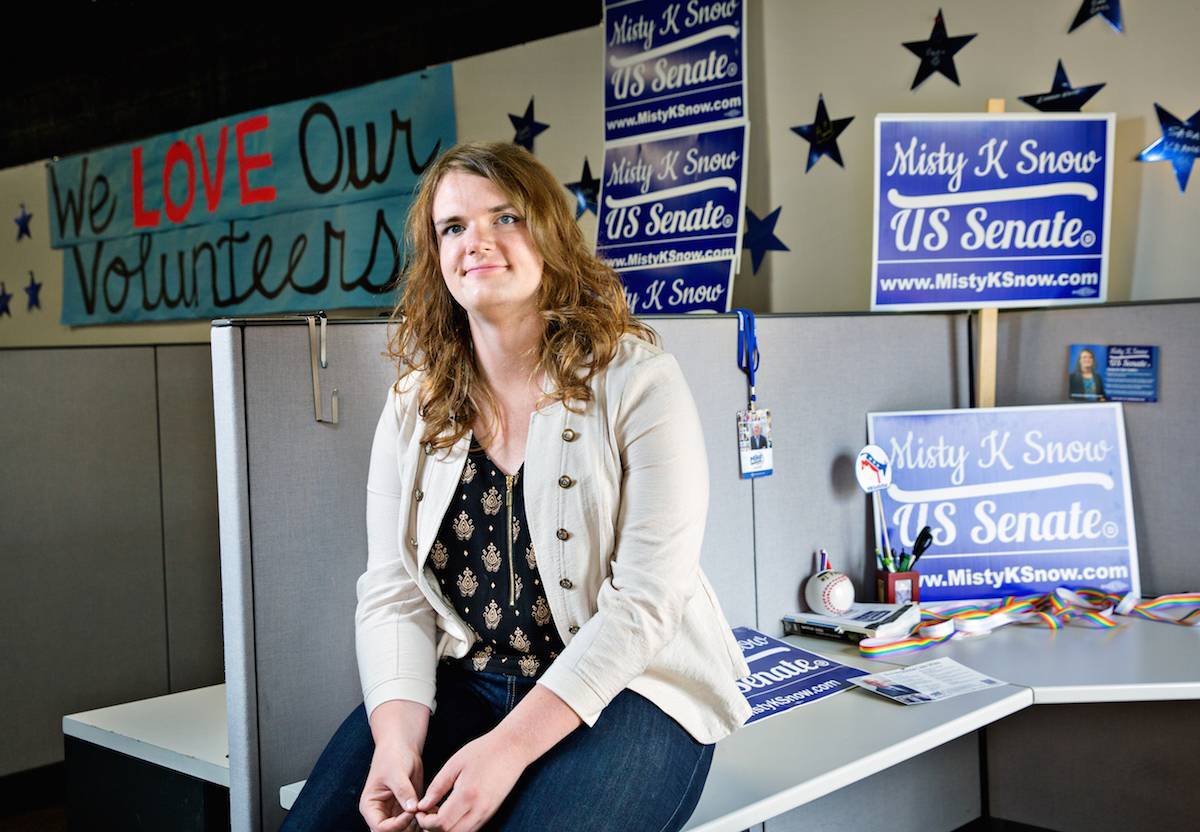
Photo of Misty Snow by Kim Raff.
Utah
In 2016, trans woman Misty Snow ran for Senate in a Mormon state that’s historically voted red. Her campaign focused heavily on issues like paid maternity leave and women’s reproductive rights, and while she did not win the seat, she made history as the first-ever transgender candidate from a major political party to be nominated for a seat in the US Senate. As evidenced by her Twitter presence, her career as a politician and activist is far from over.
Vermont
Beth Robinson is a Vermont lawyer and judge who served as co-counsel in Baker v. Vermont, the landmark case that led to adoption of the civil union law for non-heterosexual couples in 1999; she also spearheaded the passage of the Vermont’s gay marriage bill. In 2011, she was nominated to fill a seat in the state’s Supreme Court, and in 2012, she was confirmed by a unanimous vote, making her one of nine openly LGBTQ state supreme court justices who are currently serving in the US.
I won’t have this platform forever and I really so desperately want this story to be heard by enough people that it’s gonna make a difference
Virginia
In rural Virginia’s Gloucester County lives Gavin Grimm, the transgender teen who’s been in a legal battle with his school ever since he transitioned; he just wanted the right to use the boy’s bathroom, and today he has become a figurehead for transgender civil rights. His case is set to go before the Fourth Circuit, who will hear oral arguments to determine whether Title IX protects transgender students independently of federal guidance. “I won’t have this platform forever and I really so desperately want this story to be heard by enough people that it’s gonna make a difference,” Grimm told Broadly. “That’s my mission: To get education out and let people know who trans people are.”
Washington
Tori Newburn is Seattle’s first openly trans police office. More trans people were killed in 2016 than in any other year on record, and a lack of trust in police by minority communities means that many crimes can go unreported, but Newburn is trying to change that. “My hope that me coming out as a transgender police officer will be another layer of building that bridge [of hope],” Newburn previously told VICE.
West Virginia
Tim Ward and Jon Matthews had a simple mission: to fight stereotypes and misperceptions surrounding West Virginia, and to show what it means to be queer in a rural community. In 2014, the two started the Appalachian Queer Film Festival as an effort to show that film festivals—something typically reserved for major metropolises—should be held in rural areas.
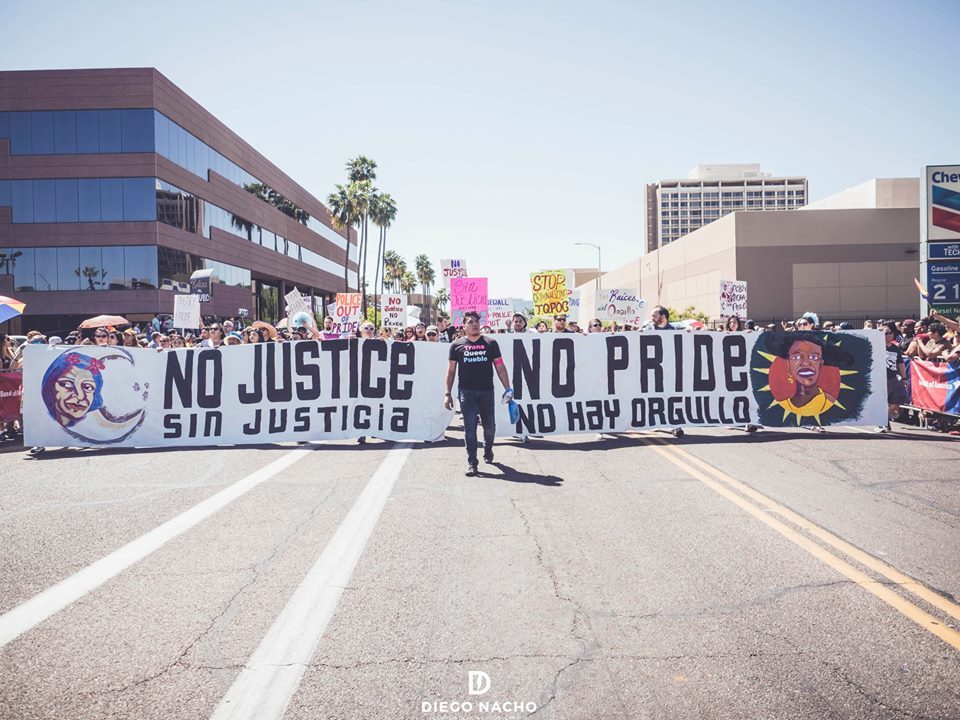
Photo courtesy Trans Queer Pueblo.
Wisconsin
In 2003, longtime LGBTQ rights activist Callen Harty was awarded “Man of the Year” by Madison’s LGBTQ community center for his queer activism, and has proven that his dedication to the cause has not waned since becoming a leader in the queer community 30-plus years ago. After the Pulse shooting in Orlando last summer, he organized a vigil outside the Wisconsin State Capitol in Madison: He wanted the city’s LGBTQ community to have a place to collectively mourn and remember the victims. Today, he publicly speaks and writes frequently about not only being gay, but also about surviving childhood sexual abuse. “Put yourself in the shoes of a young person who has to come to terms with their own identity,” he wrote in the form of an open letter to Trump on his personal blog, “and then face bullying, harassment, discrimination, and violence as a daily part of their lives simply for trying to live as their true selves.”
Put yourself in the shoes of a young person who has to come to terms with their own identity
Wyoming
John King is the chairman of Wyoming Equality, a nonprofit group that seeks to enhance the lives of LGBTQ people in the Equality State. From sending out a quarterly newsletter to over 4,000 subscribers to organizing conferences and support groups, Wyoming Equality offers education, support, and a networking and advocacy system in one of America’s most conservative states. “Everybody thinks the LGBT community has equal rights, which we don’t,” King told the Casper Star Tribune upon taking office in fall 2016. “We have to rely on a donor base more than ever so…We’re counting on membership, and we’re counting on events.”
Linda Yang also contributed to this list. Illustration by Lili Emtiaz.
More
From VICE
-
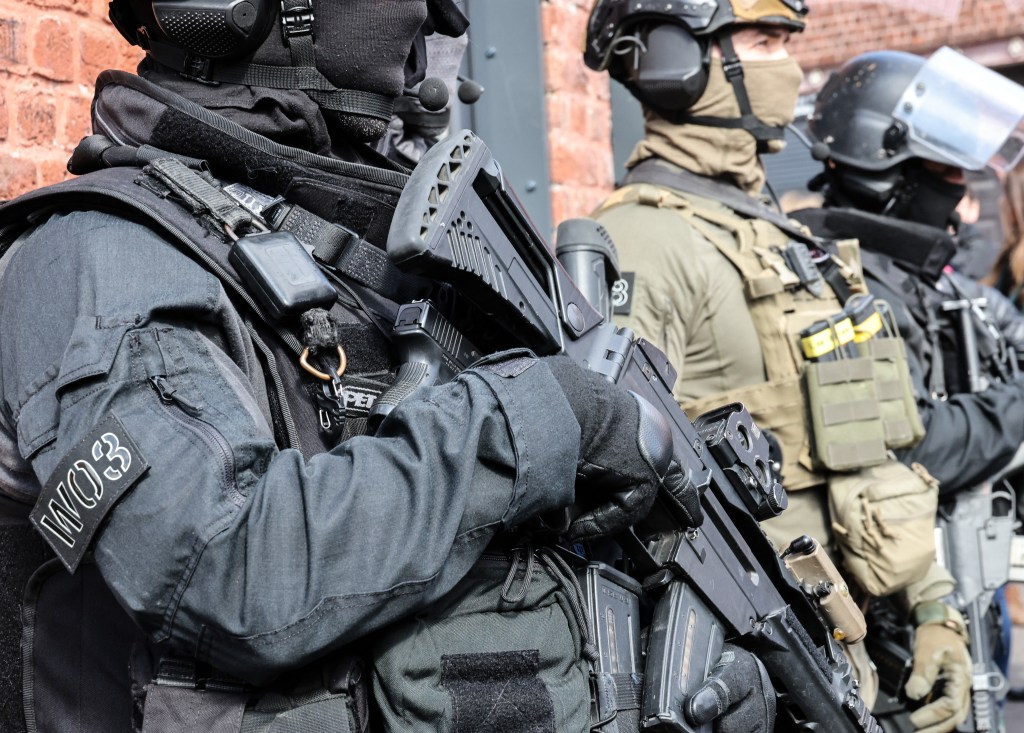
Members of the Raid, the special unit of the French police. Photo: Denis CHARLET / AFP -

Cole and Calvin, cousins, 2017. All photos courtesy of the artist and Dallas Contemporary. -

Collage by VICE -

Lauren Levis, who died after taking iboga at the Soul Centro retreat in 2024. (Photo courtesy of the Levis family)
